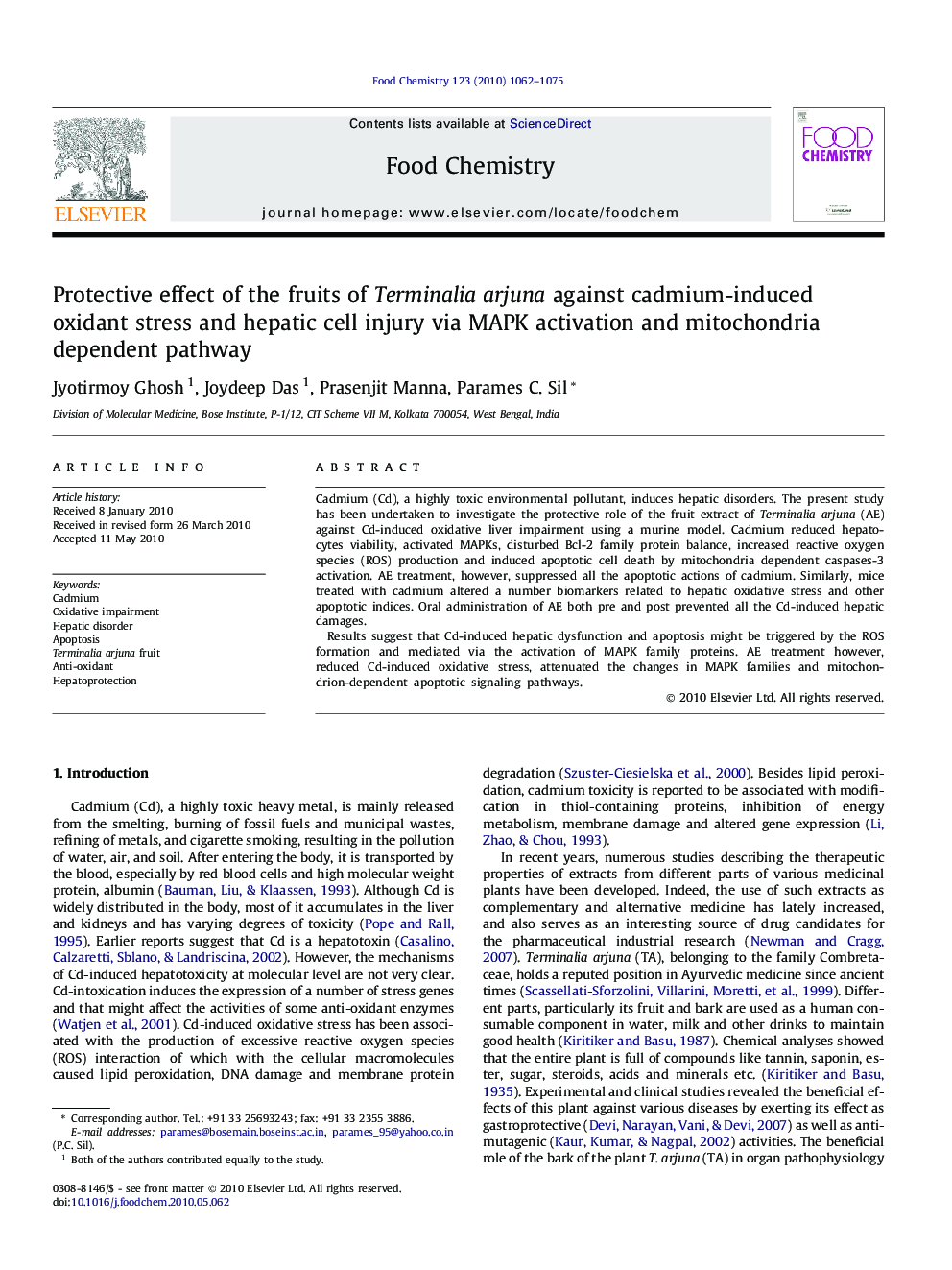| Article ID | Journal | Published Year | Pages | File Type |
|---|---|---|---|---|
| 1185886 | Food Chemistry | 2010 | 14 Pages |
Cadmium (Cd), a highly toxic environmental pollutant, induces hepatic disorders. The present study has been undertaken to investigate the protective role of the fruit extract of Terminalia arjuna (AE) against Cd-induced oxidative liver impairment using a murine model. Cadmium reduced hepatocytes viability, activated MAPKs, disturbed Bcl-2 family protein balance, increased reactive oxygen species (ROS) production and induced apoptotic cell death by mitochondria dependent caspases-3 activation. AE treatment, however, suppressed all the apoptotic actions of cadmium. Similarly, mice treated with cadmium altered a number biomarkers related to hepatic oxidative stress and other apoptotic indices. Oral administration of AE both pre and post prevented all the Cd-induced hepatic damages.Results suggest that Cd-induced hepatic dysfunction and apoptosis might be triggered by the ROS formation and mediated via the activation of MAPK family proteins. AE treatment however, reduced Cd-induced oxidative stress, attenuated the changes in MAPK families and mitochondrion-dependent apoptotic signaling pathways.
